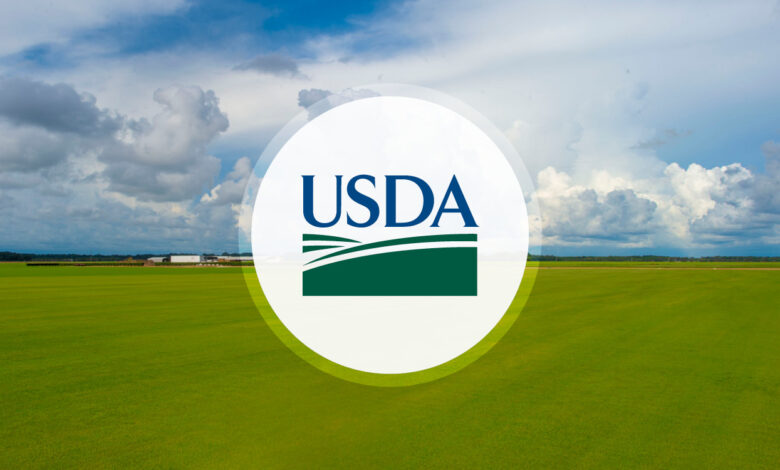USDA Announces Grants and Technical Assistance Funding for Urban Agriculture and Innovative Production

USDA is providing a total of $14.4 million in grants and technical assistance through two separately funded projects.
WASHINGTON, Jan. 8, 2025 – The U.S. Department of Agriculture (USDA) is providing a total of $14.4 million in grants and technical assistance through two separately funded projects to support urban agriculture and innovative production. USDA’s Office of Urban Agriculture and Innovative Production (OUAIP) is making available $2.5 million for Urban Agriculture and Innovative Production (UAIP) grants, building on $53.7 million invested in UAIP grant projects by OUAIP since 2020. In addition, USDA’s Natural Resources Conservation Service (NRCS), which oversees OUAIP, is providing $11.9 million in funding through an interagency agreement with the National Institute of Food and Agriculture (NIFA) to promote the hiring of Urban Agriculture Conservation Extension Educators through the Cooperative Extension programs at Land-grant Universities.
“This grant program continues to grow in popularity, and we look forward to partnering with more communities nationwide to strengthen local food systems and increase access to healthy foods,” said Louis Aspey, Acting Chief of NRCS. “We’re also excited for this opportunity to add experienced Urban Agriculture Conservation Extension Educators to enhance our customer service through the partnership with NIFA.”
“NIFA is excited to partner with NRCS and Land-grant Universities to increase the footprint of Cooperative Extension in dedicated Urban Service Center sites across the country,” said USDA NIFA Director Dr. Manjit K. Misra. “Utilizing the expertise of Cooperative Extension to increase awareness of and access to NRCS programs for those living and working in urban spaces will help meet a growing need to feed more densely populated areas.”
Urban Agriculture and Innovative Production Grants
Recipients of UAIP competitive grants, including community gardens and nonprofit farms, will increase food production and access in economically distressed communities, provide job training and education, and allow partners to develop business plans and zoning proposals. The program supports a wide range of activities through grants that include planning and implementation activities. Planning activities initiate or expand efforts of farmers, gardeners, citizens, government officials, schools and other stakeholders in urban areas and suburbs, while implementation activities accelerate existing and emerging models of urban, indoor and other agricultural practices that serve farmers and communities. USDA will accept applications on Grants.gov until 11:59 p.m. Eastern Time on March 10, 2025.
Examples of selected projects from previous years include:
- The Howard-Sumaico School District in Green Bay, Wis., which improved the school’s access to local fresh and nutritious food while also teaching student about innovative agriculture production using hydroponic technology.
- The Golden Triangle RC&D in Dawson, Ga., which increased food production and facilitated entrepreneurial business development assistance for new and beginning farmers to provide resources, mentorship, marketing, job training, innovative urban practices for vertical tower and hydroponic growing systems along with Farm to Table demonstrations.
- The Technical Assistance Partnership of Arizona in Phoenix, which created a robust urban farming industry, healthier residents, and a flourishing economic outlook in South Phoenix.
For a complete list of recipients and project summaries, visit www.usda.gov/urban.
Webinar
A pre-recorded webinar on Urban Agriculture and Innovative Production Grants | USDA provides an overview of the grants’ purpose, project types, eligibility and basic requirements for submitting an application.
Technical Assistance Funding to Land-Grant Universities
The interagency agreement between NRCS and NIFA will fund the hiring of Urban Agriculture Conservation Extension Educators through cooperative extension programs at land-grant universities who will work with NRCS employees in 27 cities nationwide that USDA has designated as urban priority locations. The educators hired through this partnership will deliver technical assistance and link producers to NRCS conservation planning and program opportunities.
Their duties will include:
- Working with NRCS to help urban agriculture producers conserve, maintain, and restore natural resources while improving the health of their operation.
- Providing direct technical assistance to urban producers to help identify resource concerns and develop science-based solutions for addressing their conservation priorities.
- Assisting producers with awareness of zoning, permitting, and administrative complexities associated with conservation practice implementation.
- Assisting producers with climate-smart mitigation activities that deliver quantifiable greenhouse gas reductions.
- Evaluating the conservation needs and assisting innovative forms of agricultural production including controlled environment agriculture systems.
The agreement will also fund the development of an Impact Collaborative for urban agriculture service delivery. The Impact Collaborative will help NRCS scale their assistance to urban producers beyond the priority cities. More information about Urban Agriculture Extension Educators and the Impact Collaborative will be forthcoming.
More Information
OUAIP was established through the 2018 Farm Bill. It is led by the Natural Resources Conservation Service (NRCS) and works in partnership with numerous USDA agencies that support urban agriculture and innovative production. The grants are part of a broad USDA investment in urban agriculture. Other efforts include:
- Investing $9 million in new funding to local organizations that will conduct outreach, education and technical assistance to urban producers and support urban service centers in 10 cities as part of a $40 million investment in urban agriculture through President Biden’s American Rescue Plan.
- Organizing 27 FSA urban county committees to make important decisions about how FSA farm programs are administered locally. Urban farmers who participate in USDA programs in the areas selected are encouraged to participate by nominating and voting for county committee members.
- Establishing 17 new Urban Service Centers staffed by FSA and NRCS employees to better serve urban producers.
- Administering the People’s Garden Initiative, which celebrates collaborative gardens across the country and worldwide that benefit their communities by growing fresh, healthy food and supporting resilient, local food systems using sustainable practices and providing greenspace.
- Creating and managing a Federal Advisory Committee for Urban Agriculture and Innovative Production to advise the Secretary on the development of policies and outreach relating to urban agriculture.
- Providing cooperative agreements that develop and test strategies for planning and implementing municipal compost plans and food waste reduction plans.
- Investing in risk management education to broaden the reach of crop insurance among urban and innovative producers.
- Partnering with the Vermont Law and Graduate School Center for Agriculture and Food Systems to develop resources that help growers understand and work through local policies.
USDA touches the lives of all Americans each day in so many positive ways. In the Biden-Harris administration, USDA is transforming America’s food system with a greater focus on more resilient local and regional food production, fairer markets for all producers, ensuring access to safe, healthy and nutritious food in all communities, building new markets and streams of income for farmers and producers using climate smart food and forestry practices, making historic investments in infrastructure and clean energy capabilities in rural America, and committing to equity across the Department by removing systemic barriers and building a workforce more representative of America. To learn more, visit www.usda.gov.
#
USDA is an equal opportunity provider, employer, and lender.



